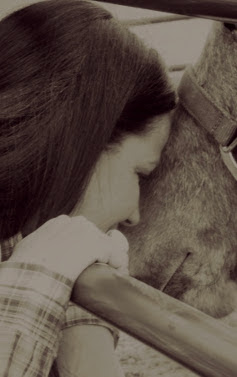- Details
- Written by: Marcella Peyre-Ferry
- Category: Learn
 With increasing age horsemen often hear people ask, “Are you still riding?” The other question that you will hear is, “Do you still have THAT horse?”
With increasing age horsemen often hear people ask, “Are you still riding?” The other question that you will hear is, “Do you still have THAT horse?”
Some people (horsemen or not) believe that you need to keep updating to a new horse, just like you regularly update to a newer model car. Personally, I have never held to that philosophy. I expect my cars and trucks to last to a minimum of 200,000 miles, and I ride my horses for as long as I am fortunate to have them in good health. Hopefully that will be well over 20 or even 30 years.
Are there any good reasons to get a new horse every few years — yes! If finances, location, or available time limit you to owning only one horse, then it may be reasonable to think about changing horses regularly.
- Details
- Written by: Allie Layos
- Category: Learn
 EQ118.16. It is the USEF rule that every equitation rider has imagined but few have experienced – the exchange of horses test, where riders are asked to dismount from their own horse and climb aboard the mount of their competitor.
EQ118.16. It is the USEF rule that every equitation rider has imagined but few have experienced – the exchange of horses test, where riders are asked to dismount from their own horse and climb aboard the mount of their competitor.
Most equitation riders go an entire career without being asked to perform this unique test, individual pattern work being the much more common course of events, and this is no surprise since the test has always been at least slightly controversial. Top show horses cost a lot of money; what happens if one pulls a shoe or injures itself with another rider on board? What about the liability? And, perhaps the biggest question of all: does it really prove what is intended?
But despite all of these concerns, the test has prevailed. Today, due to its controversy, it is used rarely and only as a tiebreaker, yet it remains a longed-for addition to equitation competition, known for prompting some of the greatest moments in the sport’s history, and providing new thrills to an industry desperate for excitement.
The exchange of horses test has been in effect for decades, with minor changes throughout the years. The current rule reads: “Exchange horses. This test is to be used only after four or more of the top riders have been tested. Only one pair of riders to exchange. Saddles can be exchanged. The attendant for each horse being exchanged must be allowed in the ring only to facilitate the change. The purpose of this test is to break a tie.”
Knollwood Farm trainer Scott Matton was chair of the UPHA Equitation Committee and a member of the United States Equestrian Federation Saddle Seat Equitation Committee when this version of the rule was put into effect in 2001.
“It needed to be revised because it had been so abused,” Scott said. “There were no guidelines. They were doing it just for the sake of doing it and watching the inequality that had happened.”
- Details
- Category: Learn
By John Alan Cohan, Attorney at Law
 In any IRS audit of horse activities, one issue will be the extent to which the taxpayer has advertised horses for sale. Advertising is considered to be an effective type of promotion to attract customers, and if you do not advertise or otherwise promote the sale of your horses, the IRS will argue that you are not engaged in a business because you don’t care about selling your product. This is true whether your field involves race horses, show horses, or stud services.
In any IRS audit of horse activities, one issue will be the extent to which the taxpayer has advertised horses for sale. Advertising is considered to be an effective type of promotion to attract customers, and if you do not advertise or otherwise promote the sale of your horses, the IRS will argue that you are not engaged in a business because you don’t care about selling your product. This is true whether your field involves race horses, show horses, or stud services.
- Details
- Written by: Marcella Peyre-Ferry
- Category: Learn
 There are horse shows that go on for years with great success and then it suddenly ebbs, with the show holders never knowing why. Other shows may be just as confused when they have a year with a huge jump in participation for no obvious reason.
There are horse shows that go on for years with great success and then it suddenly ebbs, with the show holders never knowing why. Other shows may be just as confused when they have a year with a huge jump in participation for no obvious reason.
Whether your show is growing, failing, or remaining pretty much the same from year to year, knowing why is useful. If you have good data on why people like your show or chose to pass it up, you can build on the positive features and correct the bad ones.
Word of mouth is the most obvious way to find out what people think, but it is not necessarily the most dependable. Some people hesitate to say what they are really thinking because they do not want to offend anyone, or because they don’t feel that their problems are big enough to matter. On the other side, there are always a few people who come away from a show angry and have no problem telling everyone their complaints.
An anonymous survey is probably the best way to get a real picture of how entrants feel about a show. You can do it on site by providing paper survey forms that can be completed and turned in at the show or mailed later, but there are modern ways that may work better. Survey Monkey and other services provide quick and easy ways to get feedback on your horse show, or create a survey of your own for entrants to fill out along with their online entry forms. People who would not bother to take the time to fill out a printed form with pen or pencil might be more likely to respond to an e-mailed survey request. You can add to the incentive for people to respond by offering a prize of some sort to the winner of a drawing from all respondents.
- Details
- Written by: Marcella Peyre-Ferry
- Category: Learn




